XLR8R’s Best of 2013: Disappointing Releases
For the past few weeks, XLR8R has devoted itself to highlighting the Best of 2013, […]
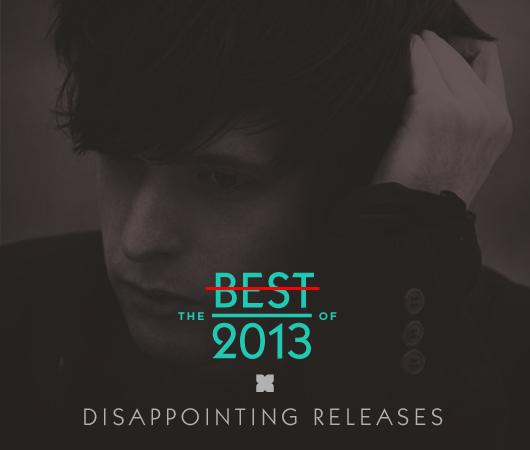
XLR8R’s Best of 2013: Disappointing Releases
For the past few weeks, XLR8R has devoted itself to highlighting the Best of 2013, […]

For the past few weeks, XLR8R has devoted itself to highlighting the Best of 2013, and although we’re not done yet—our favorite releases of the year will be posted on Thursday and Friday, with the results of our Readers Poll to follow on Monday—all of our year-end listmaking has also reminded us that not everything which landed on our desks in 2013 was as good as we hoped it would be. While it’s obvious that many, if not most, of the releases sent our way weren’t going to be particularly memorable, let alone good, a handful of records fell notably short of our expectations. The reasons were many; sometimes, it was a matter of an established artist taking an ill-advised stylistic detour; other times, we were disenchanted when a budding talent fell flat in the album format or someone simply didn’t bring their A-game to the table. Regardless of why, these 10 releases all stuck with us; more importantly, they left us thinking that they could have, and should have, been better.
10. Bonobo The North Borders (Ninja Tune)
Most people occasionally crave a nice, unobtrusive record that works best in the background, but there is a point where an album goes from being quietly amiable to borderline obsequious. For Bonobo‘s The North Borders LP, his fifth full-length album, that point was approached when the producer born Simon Green turned his soft-focus jazz inclinations into an affection for loungy chillout music. Sure, the record isn’t without a highlight or two (some of the beat-heavy instrumentals are even pleasantly reminiscent of Brainfeeder’s young artists), but the majority of its tracks are proof that Bonobo seems to only grow more tepid with time. So even though Green may not be releasing offensively bad music per se, we’re not entirely sure how a record this safe and patently bland could be so widely popular. James Eaton
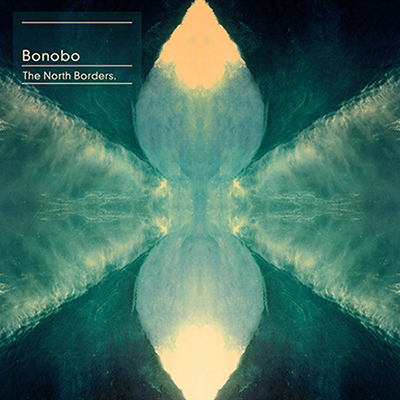
9. Snow Ghosts A Small Murmuration (Houndstooth)
Though he’s been producing for many years, Ross Tones first “broke” in 2011 and 2012 with a string of releases as Throwing Snow that largely focused on melodically tinged, mood-filtered UK bass and house. In contrast, 2013 often found Tones lending his talents to a number of diverse electronic projects, both solo and collaborative. Considering his prolific nature and his work’s increasingly divergent path, it’s not so surprising that one venture in particular missed the mark. Snow Ghosts, Tones’ collaborative effort with vocalist Augustus Ghost, was that misstep, and the pair’s debut album, A Small Murmuration, was one of the only blemishes on the generally stellar run that the Houndstooth label put together in its first year. (After all, the London outpost still managed to land at the top of our Best Labels of 2013 list.) A Small Murmuration isn’t a terrible record, but it nonetheless stuck out as one of the more misshapen endeavors to appear on the XLR8R radar in 2013, as its overwrought productions and theatrical vocal performances (featuring lyrics unafraid to discuss topics such as secret gardens, murder cries, and the hunter becoming the hunted) yielded an awkwardly overdramatic LP that was best avoided. Glenn Jackson

8. oOoOO Without Your Love (Nihjgt Feelings)
San Francisco producer oOoOO has spent much of his career doing his best to evade being lazily assigned the “witch house” tag while still existing within a murky world of streetwise, goth-streaked production. To his credit, the former Tri Angle affiliate triumphantly managed to do so on his first two EPs, helping to make the case that with some ingenuity, the combination of refracted hip-hop tropes and ghostly soundscapes could be pushed well beyond its initial fad status. But with his debut LP, Without Your Love, oOoOO hit a speed bump of sorts, delivering a full-length that simply reorganized his past ideas instead of building on them. Moreover, it’s a record that feels especially clumsy when it attempts to incorporate fuller vocal performances or faintly dip its toes into more experimental waters. For a producer who had previously been able to confidently move forward—even as he was being lumped in with an unimaginative and overcrowded crop of artists—Without Your Love inexplicably finds oOoOO laboriously spinning his wheels. James Eaton

7. Flume Flume (Future Classic/Mom + Pop)
It may be a bit much to say that we were disappointed in the self-titled debut album by Australian beatmaker Flume, especially since we’d really only heard a track or two from the guy back in 2011 before his LP made him the new posterchild for pop-sensible EDM. What we should probably say is that Flume was more frustrating than anything else. Young artist Harley Streten is undoubtedly talented when it comes to production and songwriting, but he uses those skills as much for evil as he does good. Though the album contains gauzy and likable tunes like “Sleepless” and “Change,” listeners also have to contend with insufferable beat-pop cuts (such as party-rap anthem “On Top”), Aussie singer Chet Faker’s alt-rock slurring (“Left Alone”), and bouts of twee electronica (“Bring You Down”). Flume may not have explicitly disappointed us in 2013, but the current path towards MTV2-friendly sounds he seems to be traveling doesn’t bode well for the integrity of his musical future. Patric Fallon

6. James Blake Overgrown (Republic)
Over the last few years, James Blake has elected to move beyond his roots in dancefloor production, and that crossover into the world of murky, electronic-tinged singer/songwriter fare has brought him far more commercial success than his work for R&S and Hessle ever did. Still, our beef with Overgrown, Blake’s sophomore full-length, has less to do with his decision to continue moving beyond his post-dubstep past, and more to do with the fact that even after hearing two albums’ worth of material in this vein, we still are not convinced that Blake knows exactly what he’s doing in this new territory. Surely, the man has some obvious talents that cannot be denied—mainly, his knack for sinking, gospel-like chord progressions and his uniquely smoky vocal abilities—but on Overgrown, these facets struggle to culminate into substantial musical moments. At times, one can hear that Blake is tinkering around with some interesting and melodically rich ideas, but on songs like the Brian Eno-featuring “Digital Lion,” the slinking “Life Round Here,” and “Voyeur” (an effort somewhat reminiscent of the Blake’s earlier production habits), the album feels stagnant, unable to push beyond its initial creative spark and present a wholly engaging piece of work. Overgrown does have a few bright moments (although RZA’s appearance on “Take a Fall for Me” is most definitely not one of them), but on the whole, the album makes for a rather shaky and lifeless collection of downtrodden electronic hybrids. Glenn Jackson
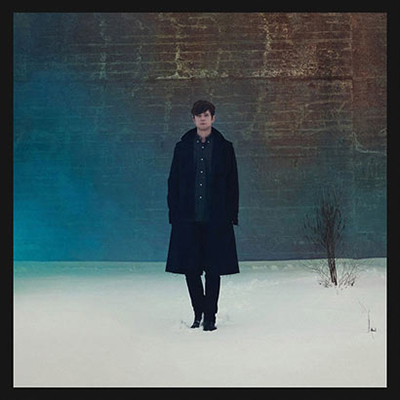
5. Close Getting Closer (!K7)
In retrospect, it might have been better for Will Saul if his Close project had remained anonymous. After all, if he hadn’t announced that he was the masked producer behind Getting Closer, it would have been hard to guess. But that’s a part of the problem, as the LP dispenses with much of the spirit that has informed his well-curated Aus and Simple imprints. Rather than continuing with the underground UK house and techno that he built his name on, the album finds Saul embracing a more populist, vocal-oriented approach that feels awfully thin in comparison. Derek Opperman

4. Skream “Rollercoaster” (Rinse)
Skream‘s transition from dubstep kingpin to disco enthusiast has certainly concerned many of those who once looked to him as a cornerstone of one of the UK’s most formative sounds. To his credit though, Skream’s initial movements in this new direction signaled that perhaps the doubters were wrong; his remix of Duke Dumont’s “Need U” was at the very least unoffensive, and his various disco-minded DJ sets that surfaced throughout the year showed him to be an artist with more than just a surface-level appreciation for the sound. Ultimately though, those promising efforts would only make “Rollercoaster,” his first official “disco single,” all the more confounding. On paper, it hits the neo-disco checklist pretty squarely—there are catchy guitar licks, gushing chords, a playful bassline, and a half-robot vocal performance from Sam Frank that hits on a number of the requisite dance-party phrases, including calls to shake booties, throw hands up in the air, and party until the morning light. The song is undoubtedly light-hearted, almost jokingly so (check the closing guitar solo for proof), but it’s also hopelessly unimaginative, trotting down a well-beaten path in terms of pop-aimed dance music. Lacking any real substantial hook, “Rollercoaster” made for a rather unremarkable blip in the overpopulated field of rehashed disco ideas. Glenn Jackson
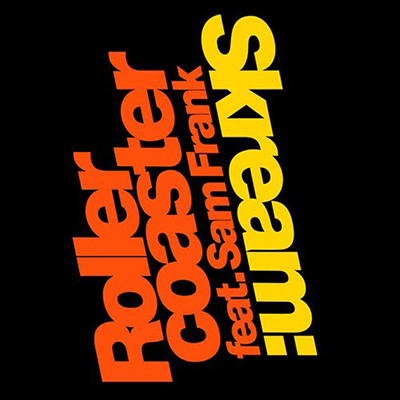
3. Jackson and His Computerband Glow (Warp)
2013 might as well be deemed The Year of the Comeback, as a surprising number of beloved artists crawled out of long hibernations to unleash brand-new studio albums onto their adoring audiences. And though his return to the music world wasn’t as highly anticipated or widely publicized as, say, that of Daft Punk or The Knife, French producer Jackson Fourgeaud, the mastermind of Jackson and His Computerband, undoubtedly had a fair number of lingering fans who were enamored with his decidedly forward-thinking and impeccably produced Smash LP when Warp released it back in 2005. Unfortunately, after Glow dropped eight years later, his comeback turned out to be more of a slap in the face for anyone hoping to hear even a semblance of the Parisian’s debut.
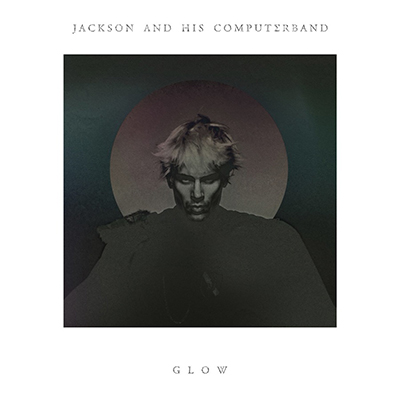
Like many of his fellow artists returning from long hiatuses, Fourgeaud took the opportunity to give his musical identity a complete overhaul. The painstakingly detailed, hyperreal beats and funky irreverence that had initially made Jackson and His Computerband such a fun project were nowhere to be found on Glow, and in their place, some kind of “futuristic” tribute to classic rock and alt-radio anthems was instated, a move which we can only describe as being terribly misguided. It’s nothing short of laborious to suffer through the overwrought Britpop aberrations which comprise the album’s hour-plus runtime. Opening track “Blow” basks in its computer-processed psychedelia and sugar-free-bubblegum hooks, while singles like “Dead Living Things” and “G.I. Jane” seem hell bent on competing for the Most Obnoxiously Kitsch award (though the latter definitely wins Worst Cover Art of 2013). We could spend quite a long time listing all of Glow‘s shortcomings, but perhaps it’s more effective to simply say that Fourgeaud’s sophomore album was a massive failure. Patric Fallon
2. Daft Punk Random Access Memories (Columbia)
The hulking beast that was the Random Access Memories marketing campaign will undoubtedly be talked about for years to come. After years of percolating, the hype culminated in a torrent of advertising across all forms of media—including billboards, SNL TV spots, and even a teaser video at Coachella—that made it seem like Daft Punk was everywhere at once. The genius of this Michael Bay-sized production though, was that there was almost no focus on the lackluster music. A single 15-second clip that could’ve evolved in any number of ways was ultimately just a preview of the vaguely summery “Get Lucky,” a disco-riffing pop tune that would eventually be burned into our collective psyche via ad nauseam play on mainstream radio. There’s little question that Random Access Memories marked a major change in direction from the robotic French duo, something that was sorely needed, especially when one considers that pretty much all of the pair’s original output since Discovery, which came out in 2001(!), has been forgettable. Still, even with its litany of all-star collaborators and much-discussed focus on “real” music, no amount of media saturation could conceal the fact that Random Access Memories was in reality a pretty dull record. Zach Gunsel
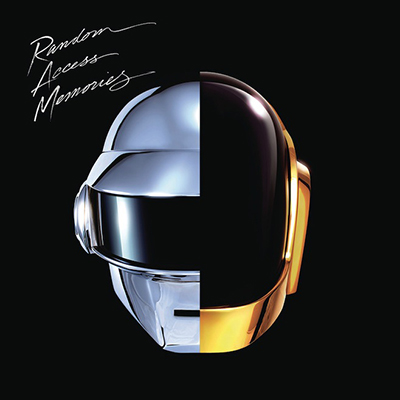
1. Zomby With Love (4AD)
It’s not hard to pinpoint what went wrong on Zomby‘s With Love—it’s editing. That might seem like a strange statement considering that many of of the double LP’s songs clock in at less than three minutes. Despite this, there’s no escaping the fact that the album is a meandering, 33-track exploration which strives to use brief, Aphex Twin-like sketches to draw a connection between the spastic bombast of UK jungle and the gangster shuffle of American trap. It’s an artistic premise that Zomby almost realizes on the LP’s first disc, which finds the UK producer hurtling through genre at rapid pace: he begins with 2-step wood blocks and soul vocals (“If I Will”), slips into Where Were You in ’92-style hardcore (It’s Time” and “Overdose”), and later reveals his hand by augmenting hoover stabs with strutting hi-hats and marching snares (“Orion”). Where it all gets wearing is on With Love‘s second disc. Although Zomby’s trap experiments had previously been introduced within the context of his work, he focuses on the genre almost exclusively here, with what feels like an endless procession of half-baked attempts to capitalize on a trending sound. Tracks like “Entropy Sketch,” “Glass Ocean,” and “How to Ascend” all pass by forgettably. They have the right sonic elements, but their lack of structure makes the music seem devoid of emotional investment and feeling. It’s a much too long and totally disposable end to a record that at the very least had an interesting, if not entirely unique, premise. Considering the visionary work Zomby has done in the past, we expected a lot more. Derek Opperman

XLR8R’s Best of 2013 coverage will continue through the end of this week, so check back each day for additional year-end round-ups. In the meantime, don’t forget to take a look at the other Best of 2013 pieces we’ve posted already:
XLR8R’s Best of 2013: Top Downloads (100 – 81)
XLR8R’s Best of 2013: Top Downloads (80 – 61)
XLR8R’s Best of 2013: Top Downloads (60 – 41)
XLR8R’s Best of 2013: Top Downloads (40 – 21)
XLR8R’s Best of 2013: Top Downloads (20 – 1)
XLR8R’s Best of 2013: Features
XLR8R’s Best of 2013: Podcasts
XLR8R’s Best of 2013: Labels
XLR8R’s Best of 2013: Tracks (50 – 26)
XLR8R’s Best of 2013: Tracks (25 – 1)
XLR8R’s Best of 2013: New Artists
XLR8R’s Best of 2013: Gear

